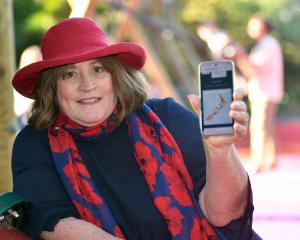
Mazen Diwan was a mechanic and taxi driver at home in Idlib, Syria, but now he would be happy with any work.
Through a translator, he said he had struggled to find a job because his English was poor.
"Syrians, they like to work. They don’t like to sit. They don’t like to keep depending on the Government."
Mr Diwan (48) took English language classes, but because he speaks Arabic at home and around friends, he said it was difficult to become fluent.
"I feel we were brought in and then left. Language is a problem, especially at my age. There is no plan for us to get jobs once we arrive."

He, his wife and three children arrived in the city in September 2016.They live in a state house in Brockville.
Three of Mr Diwan’s other adult children are scattered around the Middle East. He said he loved the people of Dunedin, as they were always very helpful to his family.
"A volunteer still keeps in touch with me after all this time to see how we are doing. I want to thank her. I do appreciate it."
Dunedin was a good city to live in, but he was worried about how refugees were supported once they arrived.
"We went to different places, but I couldn’t find jobs. I just want anything, just to get me out of the house."
Dunedin refugee campaigner Afife Harris says Mr Diwan’s situation is common.
She has created a "refugee centre" at Dunedin Community House, where she helps them find jobs and do other daily tasks.
"When I saw there was nobody doing anything I thought I would see what I can do as one person.
"It’s not easy. Language is the main barrier. They’re happy to work as volunteers, to see if they fit in and can also learn English on the job."
Mrs Harris and Dunedin man Malcolm McQueen submitted on the Dunedin City Council’s 10-year plan this week asking for financial support for the centre, and perhaps the creation of a larger body to help refugees.
In the first year of resettlement, former refugees are supported by the Red Cross.Services include enrolment in GP practices, early childhood education, schools, English language classes and employment.
After that year, the Red Cross involvement largely ends.
Mr McQueen said this was not long enough for most to truly settle into the city.
"I think we need some sort of centre they could go to which could support them beyond that period. I certainly see the council as providing funds, but not necessarily leading the charge."
Dunedin has settled 387 former refugees since it became a refugee resettlement location two years ago. Fewer than half were adults.
Red Cross southern humanitarian services manager Sue Price said although its contract for refugee services ended after one year, in some circumstances the organisation continued to help.
One example was its Pathways to Employment programme, where the Red Cross helped refugees find jobs.
In the 2016-17 financial year, the organisation placed 205 people in work across the country.
In Dunedin it has helped place 40% of former refugees who arrived since 2016 and are able to work into training, study or employment.
However, the service was for refugees who could already converse in English.
"There are a number of things considered before they are entered in the programme. We want to make sure it will be successful."
If it was clear a former refugee had not settled in the city, Red Cross volunteers would continue to help them, Mrs Price said.
"As well as that, former refugees who have now settled are helping them with transport and that kind of thing. As that continues to grow I think that will help."
Dunedin Refugee Steering Group chairman and Dunedin City councillor Aaron Hawkins said he did not want to comment on the submission of Mrs Harris and Mr McQueen during the 10-year-plan process.
However, council staff were working closely with Mrs Harris to help her prepare a grant application to support her efforts, he said.
A way to help refugees find jobs was to support efforts for wider community interaction, he said.
"We’ve heard that there is no shortage of employers willing to take them on — in fact, there are more jobs than there are workers ready to fill them."
Immigration Minister Iain Lees-Galloway said the advice he had was overall the country’s resettlement strategy for former refugees worked well, but the ministry was always wanting to see how it could improve services for refugees.












